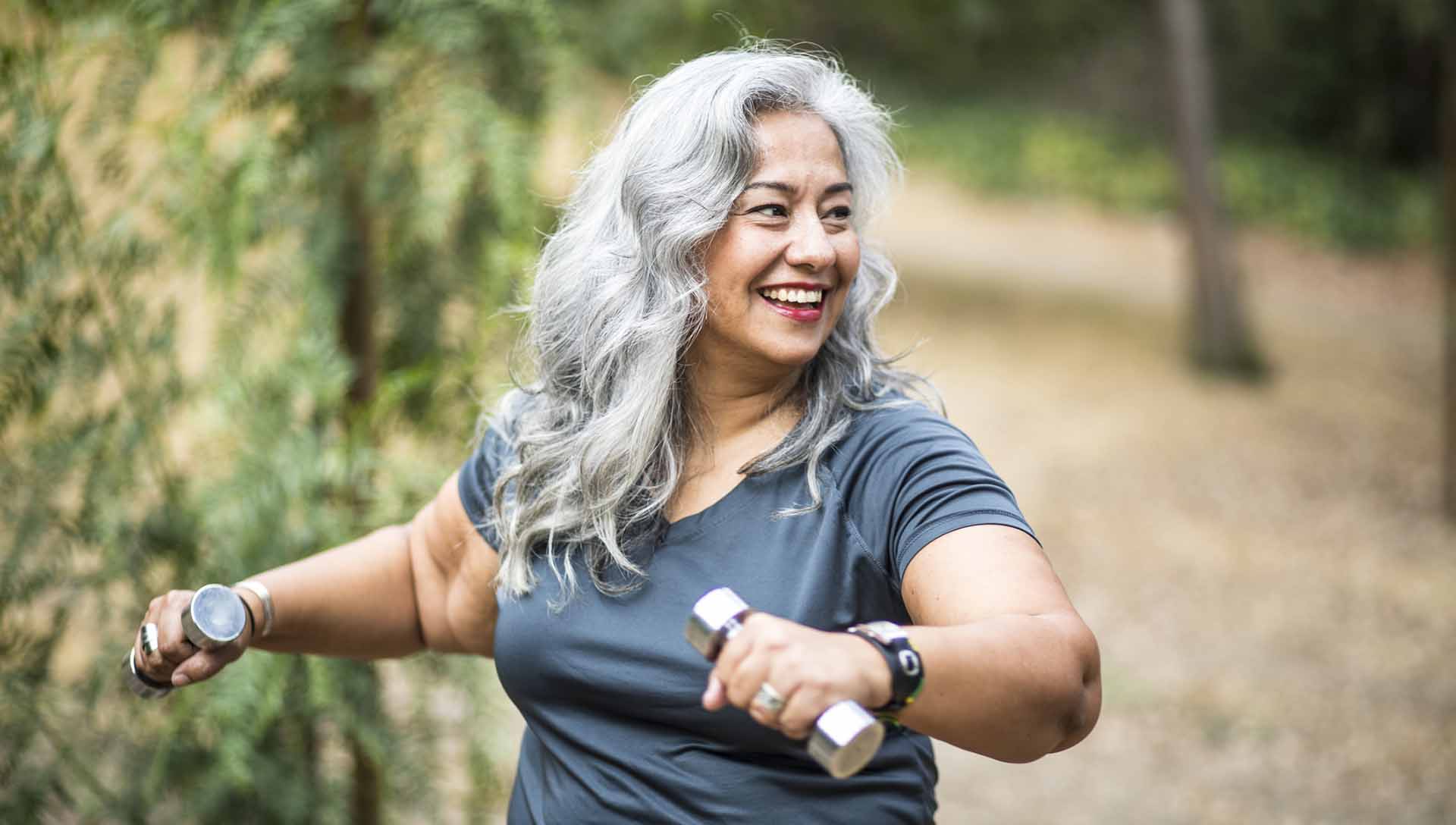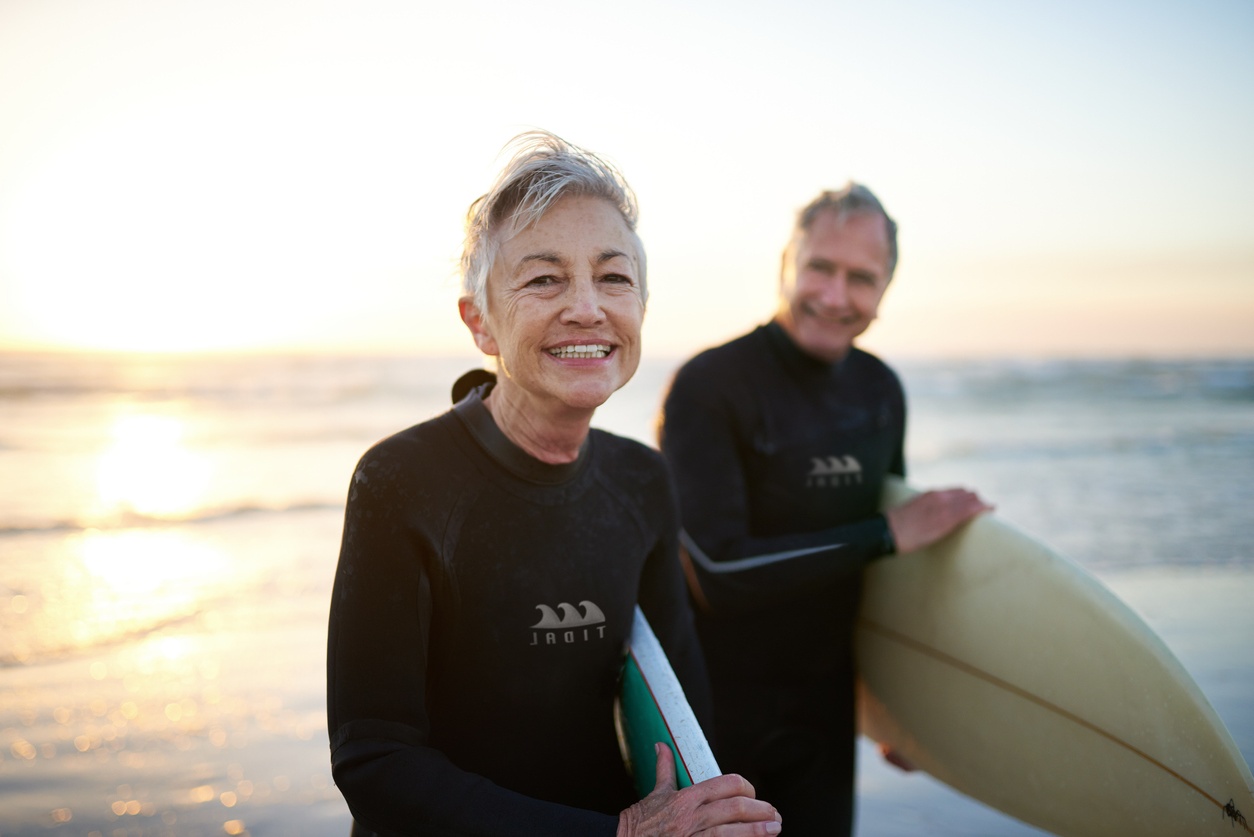-
Breast cancer treatment can be difficult, and giving your body plenty of time to rest and replenish is essential. But new research suggests a regular dose of exercise may also be a vital ingredient for recovery.
“Historically, breast cancer patients may have been told to rest,”1 says Professor Daniel Galvao, Director of the Exercise Medicine Research Institute at Edith Cowan University. “However, research now shows targeted exercise may help fight the disease, with more physically active patients showing increased survival rates compared to those less active.”2
Watch the Medibank Health Update
Why exercise is key during breast cancer treatment

-
The importance of exercise during cancer treatment is supported by a number of national and international organisations including Exercise and Sports Science Australia (ESSA), the American College of Sports Medicine (ACSM), and the American Cancer Society.3
At its simplest level, getting active can help you feel stronger, happier and more energised during this challenging time. The Breast Cancer Network of Australia says exercise can help you manage some of the side effects of breast cancer treatment, such as fatigue, pain and lymphoedema.4
Exercise can also be a powerful tool for your mental health, helping to improve your mood, sleep and confidence, and prevent and manage symptoms of depression and anxiety.
And along with boosting recovery, research suggests exercise may help reduce the risk of breast cancer returning. This was emphasised by a major study published in the Canadian Medical Association Journal in 2017, which reviewed 67 recent studies on the impact of lifestyle factors on breast cancer recurrence and survival.
Of all the lifestyle factors reviewed (including diet, smoking and alcohol), exercise was found to have the strongest impact on breast cancer outcomes.5
What type of exercise?
So how should you devise an exercise plan for your cancer treatment?
“Prescribed exercise should be based on a patient’s specific needs and in consultation with their health professional,” Professor Galvao says.
“Cancer specific exercise guidelines are being updated in 2019 by ESSA and by the ACSM. However, as a starting point, patients should consider both aerobic and resistance training, aiming to improve their cardiovascular health, muscle mass and strength. Muscle mass has been identified as a predictor of survival in women with non-metastatic breast cancer.”6
For a targeted exercise program, designed specifically for your health needs, an accredited exercise physiologist is your go-to. Accredited exercise physiologists are university-qualified health professionals who specialise in exercise programs for people with chronic medical conditions, injuries and disabilities. They can design and deliver a safe and effective program that will help support you throughout your treatment.
To find an accredited exercise physiologist near you, search the ESSA directory.
Tips for getting active
Start small. If you haven’t done much exercise recently, start slowly and gradually build up to the recommended amount. Going for a walk is a great start.
Break it up. You don’t have to do half an hour all at once – you can break it up into several smaller sessions throughout the day if that makes it more manageable.
Find something you enjoy. There are so many different ways to get active, and you’re much more likely to do it if it’s something you enjoy – or at least don’t hate. Try a few different things to find what you like, and keep mixing it up to prevent getting bored.
Get support. Get advice from your team of healthcare professionals – they’re there to help you feel your best. It may be helpful to get a personalised exercise program from an accredited exercise physiologist or physiotherapist, or to see a personal trainer to help keep you on track.
Schedule it in. Look at your week and plan out when you’ll exercise. Making fitness part of your routine is the best way to turn it into a habit.
Join a group. Making exercise social is a great way to boost your motivation and keep it fun. Group fitness classes and community fitness events can help you feel more connected as you get active. Check out Medibank Free + Active for fun, free and social events near you.
Listen to your body. The effects of cancer treatment can mean exercising is not always easy. Don’t push yourself too hard, and give yourself plenty of time to rest and recover.
MORE: Can strength training help improve breast cancer treatment?
1 Schmitz KH et al. American College of Sports Medicine roundtable on exercise guidelines for cancer survivors. Med Sci Sports Exerc. 2010 Jul;42(7):1409-26. doi: 10.1249/MSS.0b013e3181e0c112.
2 Holmes MD et al. Physical activity and survival after breast cancer diagnosis. JAMA. 2005 May 25;293(20):2479-86.
3 Rock CL et al. Nutrition and physical activity guidelines for cancer survivors. CA Cancer J Clin. 2012 Jul-Aug;62(4):243-74. doi: 10.3322/caac.21142. Epub 2012 Apr 26.
4 Schmitz KH et al. Weight lifting for women at risk for breast cancer-related lymphedema: a randomized trial. JAMA. 2010 Dec 22;304(24):2699-705. doi: 10.1001/jama.2010.1837. Epub 2010 Dec 8.
5 Hamer J and Warner E. Lifestyle modifications for patients with breast cancer to improve prognosis and optimize overall health. CMAJ February 21, 2017 189 (7) E268-E274.
6 Caan BJ et al. Association of Muscle and Adiposity Measured by Computed Tomography With Survival in Patients With Nonmetastatic Breast Cancer. JAMA Oncol. 2018 Jun 1;4(6):798-804. doi: 10.1001/jamaoncol.2018.0137.
-
Can a little self-care be better for the whole family?
New data reveals the benefits of ‘self-care’
-
Anxious Australia: mental health conditions continue to increase
More than a quarter of young Aussies now living with anxiety
-
What is the ideal weight gain during pregnancy?
Weight gain is a natural and healthy part of pregnancy – but research shows 3 in 4 women are gaining too much or too little. Here’s what you need to know.
-
How can you reduce your risk of dementia?
New research suggests the lifestyle risk factors for dementia may be different for men and women.
-
Is low back pain holding you back?
Research shows active recovery can help you find relief.
Subscribe to receive the best from Live Better every week. Healthy recipes, exercise tips and activities, offers and promotions – everything to help you eat, move and feel better.
By clicking sign up I understand and agree to Medibank's privacy policy






